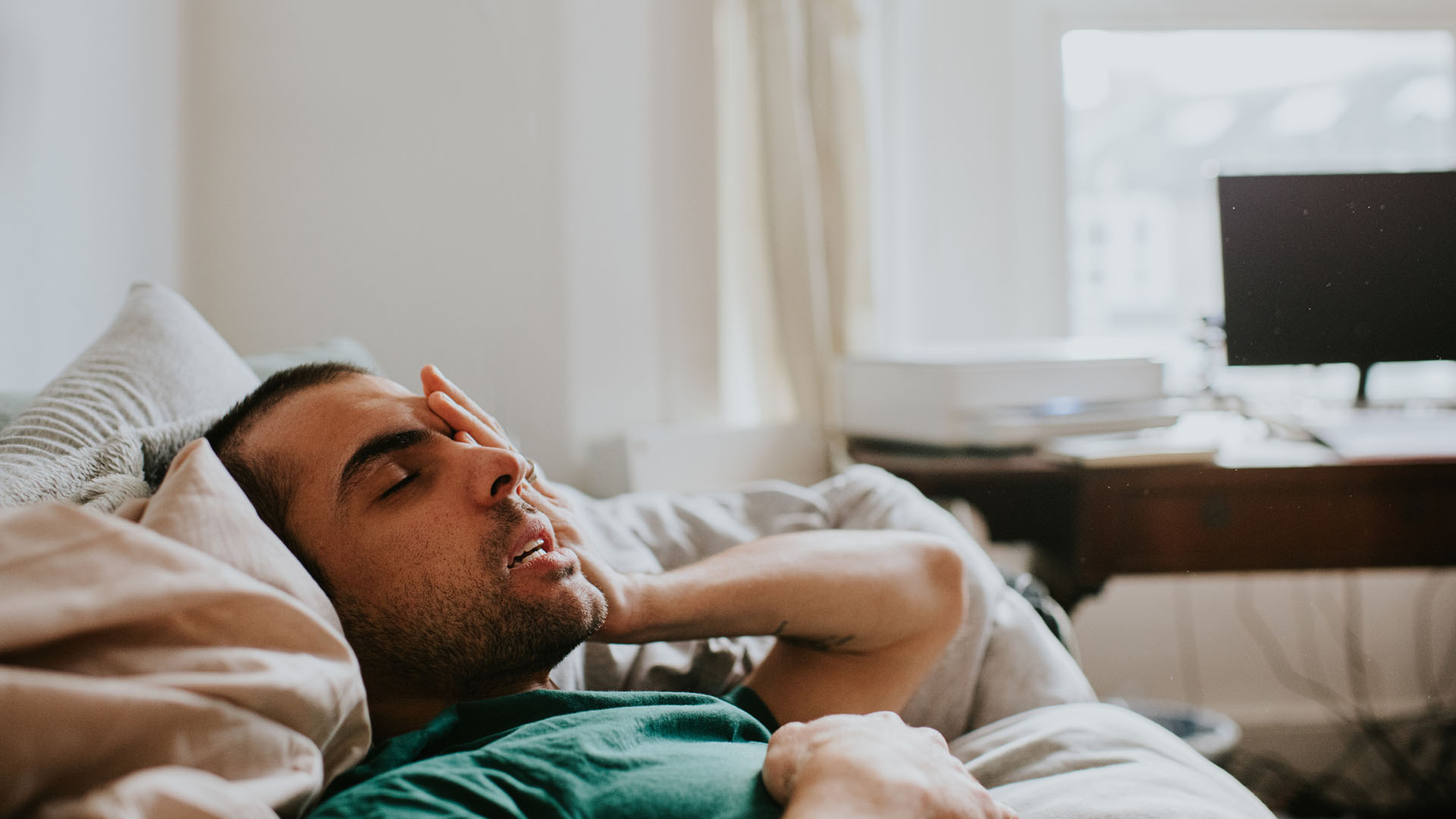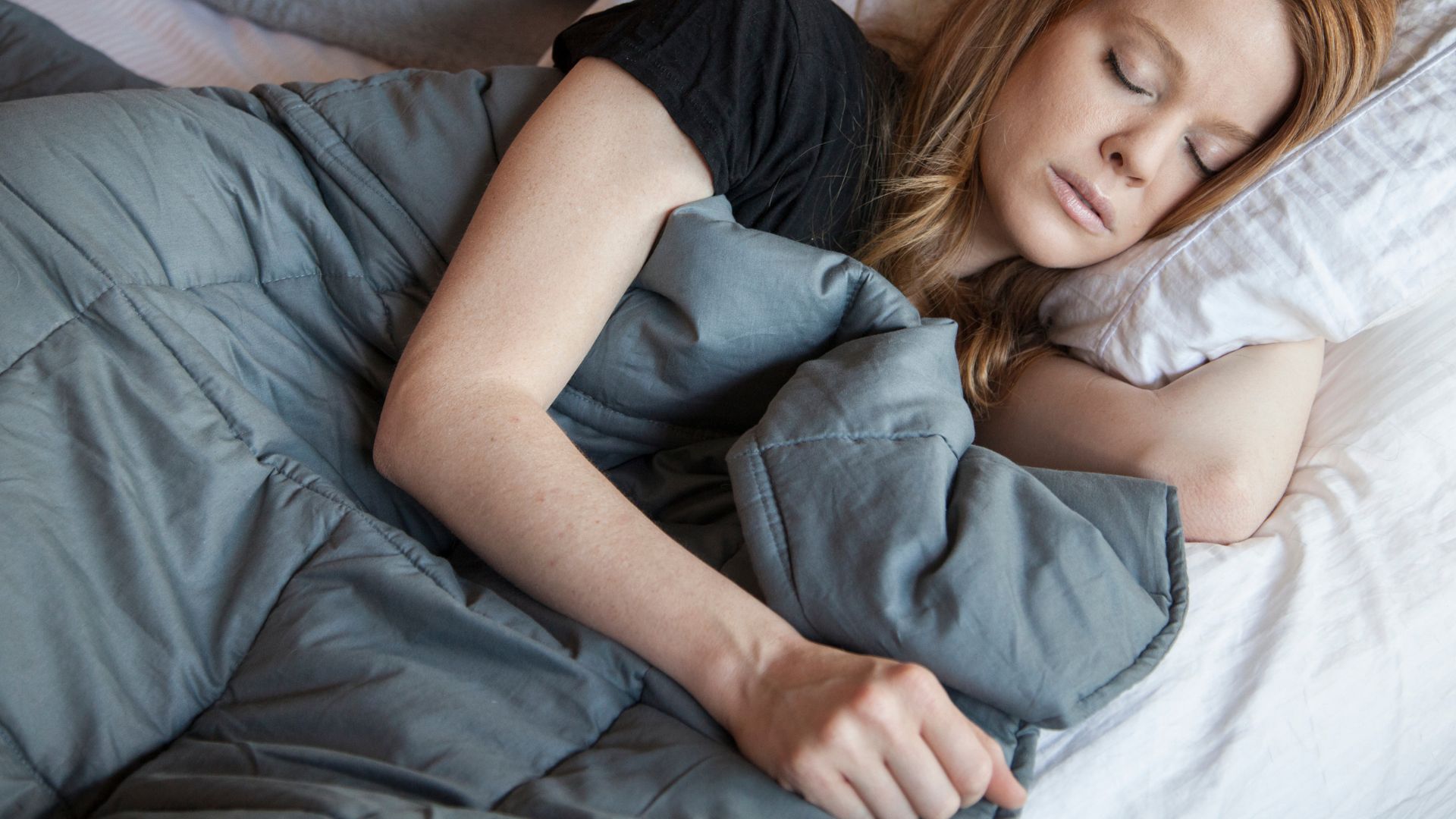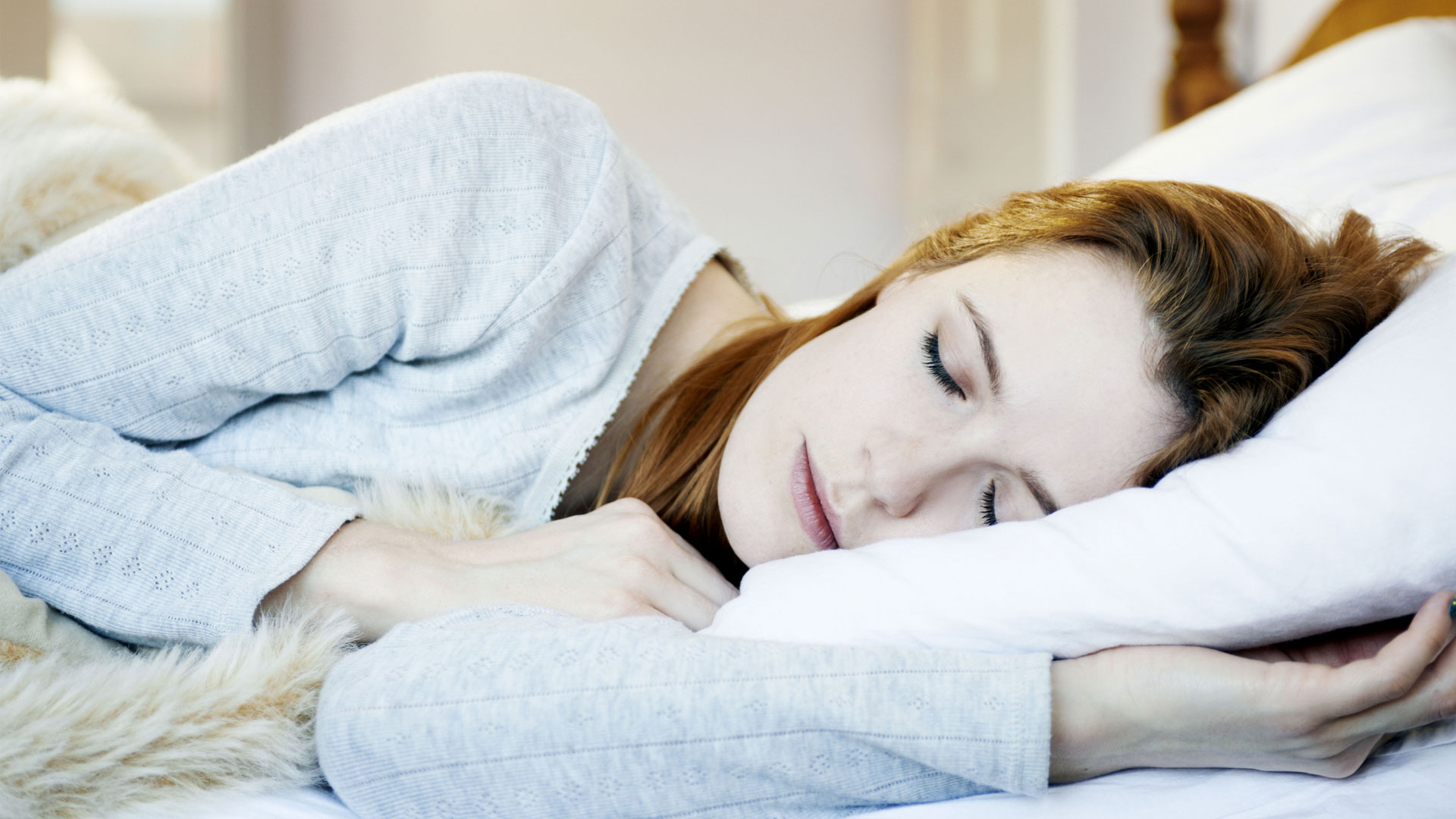Sexsomnia really exists — here's what to know about 'sleep sex'
Sexsomnia is a disorder that leads people to perform sexual behaviors while they're asleep.

Get the world’s most fascinating discoveries delivered straight to your inbox.
You are now subscribed
Your newsletter sign-up was successful
Want to add more newsletters?

Delivered Daily
Daily Newsletter
Sign up for the latest discoveries, groundbreaking research and fascinating breakthroughs that impact you and the wider world direct to your inbox.

Once a week
Life's Little Mysteries
Feed your curiosity with an exclusive mystery every week, solved with science and delivered direct to your inbox before it's seen anywhere else.

Once a week
How It Works
Sign up to our free science & technology newsletter for your weekly fix of fascinating articles, quick quizzes, amazing images, and more

Delivered daily
Space.com Newsletter
Breaking space news, the latest updates on rocket launches, skywatching events and more!

Once a month
Watch This Space
Sign up to our monthly entertainment newsletter to keep up with all our coverage of the latest sci-fi and space movies, tv shows, games and books.

Once a week
Night Sky This Week
Discover this week's must-see night sky events, moon phases, and stunning astrophotos. Sign up for our skywatching newsletter and explore the universe with us!
Join the club
Get full access to premium articles, exclusive features and a growing list of member rewards.
Sexsomnia is a sleep disorder in which a person unknowingly enacts sexual behaviors whilst they're asleep. There is no cure for the condition, but medications and lifestyle changes have been shown to manage the disorder effectively.
It's thought that 7.1% of the global adult population will experience sexsomnia at some point in their lives, according to a 2018 review in the journal Cureus. It's also thought to be more common in men than women, according to a 2007 paper in the journal Social Psychiatry and Psychiatric Epidemiology, although it is unclear why.
Sexsomnia is sometimes called sleep sex, but it can involve all kinds of sexual behaviors including masturbation, moaning and orgasm. It can be distressing and embarrassing for both the person experiencing it and anyone sharing a room with them. Live Science spoke with experts to find out what is understood and what is still unknown about the disorder.
What is sexsomnia?
Sexsomnia is classed as a parasomnia, a group of disorders that includes sleep walking, sleep talking and night terrors. Parasomnias are grouped by sleep stage. Some occur during rapid-eye-movement (REM) sleep — "light" sleep in which our brain is active and dreaming — and some occur during deep, non-REM sleep.
Sexsomnia happens when the brain is suddenly, partially-aroused from deep, non-REM sleep, according to a 2010 report in the journal Clinical Neurology and Neurosurgery. The person, still technically asleep, begins to enact certain sexual behaviors. Nearly all episodes are followed by amnesia, said Dr. Rexford Muza, a sleep physician at Guy's and St Thomas' Hospital in the U.K.
During an episode, a person might fondle themselves or a bed partner, or they might make sexual noises or movements. Sexsomnia can involve sexual acts that the person has never done before or would never do when awake, Muza told Live Science.

Dr. Rexford Muza is a sleep and respiratory physician at Guy’s and St Thomas’ NHS Trust in the U.K. He is a European Sleep Research Society (ESRS) somnologist (sleep expert) who also works at the Sleep Disorders Centre at St Thomas’. Muza has contributed to sleep research including research on sleep disordered breathing, hypersomnia and parasomnia.
A 2016 review led by Muza in the journal Current Opinion in Pulmonary Medicine found that women are more likely to masturbate during an episode, whilst men most frequently report initiating sexual intercourse with the person in the bed beside them. Sometimes the bed partner will be awake and consenting — though the person with sexsomnia is still asleep and won't remember in the morning. However, there have been cases in which neither party has been awake, which can have serious legal consequences.
Get the world’s most fascinating discoveries delivered straight to your inbox.
What causes sexsomnia?
Not much is understood about the mechanisms behind sexsomnia and other non-REM parasomnias.
Sleep studies can monitor the nightly brain activity of people who experience parasomnias using an electroencephalogram (EEG). According to a 2016 study in the journal Sleep, in cases of sleepwalking and night terrors, which are also disorders of partial awakening like sexsomnia, EEG showed activity in the motor cortex and the cingulate cortex, the former being responsible for bodily movement and the latter for decision making. The rest of the brain still appeared soundly asleep.
But why would a partially awake brain enact sexual behaviors? Dr. Carlos Schenck, a professor of psychiatry at the University of Minnesota Medical School, said disorders of partial awakening tend to involve one of our basic instincts.
"Eating, sex, walking, fear — all these basic instincts and primitive behaviors can be inappropriately released during sleep," he told Live Science. Why these particular behaviors occur in some individuals and not others isn't fully understood.
What triggers sexsomnia?
From cases of sexsomnia filmed in laboratory studies by Muza and his team, most are triggered by a bed partner moving. This stirring likely causes a partial arousal in the brain, he said, but anything that could disturb sleep — snoring, an external noise or sudden temperature change — could be a trigger.
People with obstructive sleep apnea — in which the throat muscles intermittently relax and block the airway during sleep — can get sexsomnia as a symptom, according to the Mayo Clinic, as trouble breathing causes them to make gasping or choking noises in the night, partially waking up the brain.
Stress can also be a trigger. In one 2019 study, published in the journal Frontiers in Neurology, 80% of participants with sleep-related motor behaviors found stressful situations could lead to more episodes, while a 2023 study in the journal Military Medicine, which examined four individuals, suggested the stress of being on military duty may increase service members' risk for all non-REM parasomnias.
A high libido, however, is not a trigger for sexsomnia, Schenck said. "And there's no correlation between unsatisfied sexual drive and sexsomnia," he said.

How is sexsomnia diagnosed?
Many people with sexsomnia are only aware of the problem because someone sleeping near them has noticed it. In someone who sleeps alone, sexsomnia can go undiagnosed for quite some time. In these people, the realization can come from an injury caused by vigorous masturbation which they can't explain in the morning, Schenck said.
For sexsomnia to be diagnosed, a physician must first rule out other conditions that can present in similar ways, including epilepsy and obstructive sleep apnea, Muza told Live Science. Next, he would look at the patient's medical history, as people with sexsomnia often have a history of other parasomnias, such as sleep walking or night terrors.
Finally, a physician would run a sleep study — called a polysomnography, which records brain waves, blood oxygen levels, heart rate, breathing, and eye and leg movements — to monitor a person's nighttime activity. Though a video-polysomnography can support a diagnosis if a sexsomnia episode occurs on the night in the lab, it can't be relied upon, said Muza.
"The problem with a sleep study is you might come in and sleep beautifully and there are no events on that night," he said. "That doesn't exclude [a diagnosis] at all if the sleep history is convincing."
How is sexsomnia treated?
There is no cure for sexsomnia, but there are ways for people to manage the condition.
"One way we treat sexsomnia is by consolidating sleep and suppressing the arousal [waking-up] response," Muza said. "So, if we can make [a patient] sleep deeper, it's less likely that they'll have a partial arousal [leading to sexsomnia]."
Prescription medications, including benzodiazepines, a class of sedative drugs that include clonazepam, can help to induce sleep, though they can also make it difficult for a person to wake up from deep sleep, Muza said, which can lead to a partial arousal. Melatonin, a natural sleep hormone, can also act as a hypnotic but without the usual grogginess or the abnormal behaviors, Muza said. However, it's important to speak to a doctor before taking any medication for a sleep disorder as they can have side effects.

Changes to nighttime routines can also reduce arousals. Sleeping in a bigger bed or leaving more room between yourself and a partner can make it less likely that physical touch will spur on a sexsomnia episode, Muza said. "And I always tell my patients to avoid sleeping next to minors or strangers, because you've got the propensity to react that way."
Avoiding alcohol and caffeine within a few hours of going to sleep can also help, Schenck said, as alcohol and drug use has been documented as a precipitating factor for sexsomnia. He has also found that hypnosis can be effective as a treatment, and it has been found to lengthen the amount of time spent in deep, non-REM sleep, according to a 2014 study in the journal Sleep. However, more robust, large scale research is needed before this can be suggested as a viable treatment.
Although there is no cure for sexsomnia, there is hope for patients, Muza said, because parasomnias tend to go away with time or patients develop intelligent strategies for dealing with them. Sexsomnia, he said, will not always be so distressing.
This article is for informational purposes only, and is not meant to offer medical advice.

Amy Arthur is a U.K.-based journalist with a particular interest in health, medicine and wellbeing. Since graduating with a bachelor of arts degree in 2018, she's enjoyed reporting on all kinds of science and new technology; from space disasters to bumblebees, archaeological discoveries to cutting-edge cancer research. In 2020 she won a British Society of Magazine Editors' Talent Award for her role as editorial assistant with BBC Science Focus magazine. She is now a freelance journalist, with bylines in BBC Sky at Night, BBC Wildlife and Popular Science, and is also working on her first non-fiction book.
 Live Science Plus
Live Science Plus










